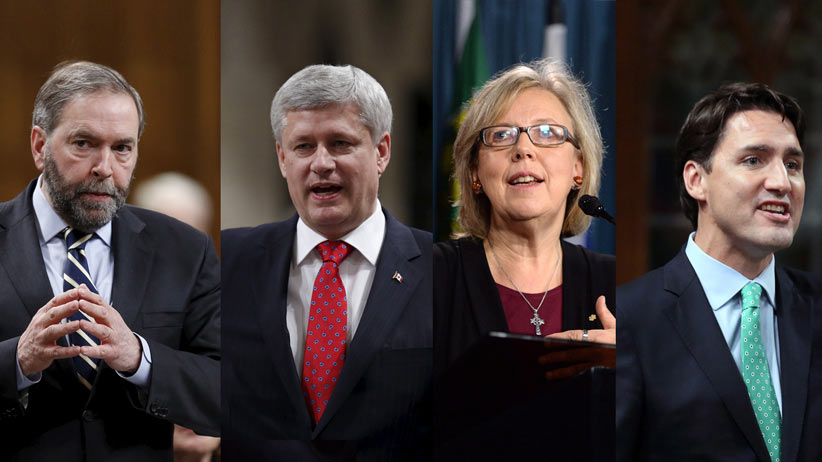What happens when women take over the debate?
Aaron Wherry previews three things worth watching in the week ahead
Aaron Wherry
Share
1. Did the second leaders’ debate change anything? And if so, how?
Whatever the rush to declares winners and losers after a televised debate, it’s unknown in the immediate aftermath whether any of what transpired will matter to any tangible degree. A poll or two might later suggest voters were particularly impressed with someone, and that might contradict some or all of the professional analysis, but even that might not amount to anything. The remarkable competitiveness (or indecisiveness?) of this election reached its pinnacle this week when one particular poll showed the three major parties at 30.9 per cent, 30.4 per cent and 30.1 per cent of public preference (in order: the Liberals, Conservatives and New Democrats, though with such small margins, the running order hardly matters). If this election is really about the economy, could the formal debate about the economy actually start to break that tie?
2. What happens when women take over the debate?
On Monday night, a coalition of organizations concerned with women’s rights will host a discussion of women’s issues in Toronto. This was to be a leaders’ debate on women’s issues—something that was only previously done during the 1984 election—but NDP Leader Tom Mulcair withdrew after Prime Minister Stephen Harper declined to participate. So, instead, interviews with four party leaders—Justin Trudeau, Mulcair, Elizabeth May and Gilles Duceppe—will be aired alongside panel discussions of the issues at hand. This could at least focus the larger election debate for a day or two on issues of equality and women’s welfare, and might provoke questions for the Prime Minister about why he did not participate.
3. Can we get your number(s)?
The NDP attempted last week to both defend itself and pressure its opponents with the release of costing information for its campaign platform—essentially, the math that’s supposed to underpin the promises it has been making. Every party is expected to eventually do this, but the questions for the NDP, both specifically in this campaign and more generally on the party’s fiduciary bona fides, were particularly pressing, so the New Democrats produced a set of numbers before Thursday night’s debate on the economy. Those numbers were not greeted with universal praise and acceptance, however. There were immediate complaints about details that still need to be explained, and later came questions about the underlying assumptions about the economic situation. Will those questions persist? And how much longer can the Conservatives and Liberals delay providing their own calculations?
[widgets_on_pages id=”Election”]
